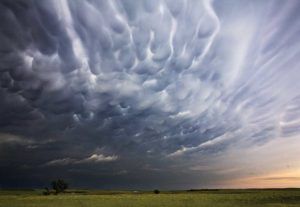Scott Sanders in Orion Magazine:
 Until recent years, the sound of rain has always filled me with a sense of blessing. Rain drumming on the tin roof of a Tennessee farmhouse, my first home. Rain pattering on the canopy of oak and maple forests in Ohio, on forests of pine in Maine and Vermont, on reeds and rushes in Louisiana bayous, on spongy nurse logs in Oregon, on tundra and stone in Alaska. From earliest childhood, I would tingle with anticipation at the rumble of an oncoming storm. I would shiver with pleasure as rain tapped on windows and gurgled through gutters, and I would dash outside to rejoice in the thrum of rain on my umbrella or on the hood of my slicker. I heard in these sounds a promise of green grass, sweet corn, flowing creeks. It was the music of abundance. When preachers in the rural Methodist churches I attended as a boy spoke of grace, I thought of rain.
Until recent years, the sound of rain has always filled me with a sense of blessing. Rain drumming on the tin roof of a Tennessee farmhouse, my first home. Rain pattering on the canopy of oak and maple forests in Ohio, on forests of pine in Maine and Vermont, on reeds and rushes in Louisiana bayous, on spongy nurse logs in Oregon, on tundra and stone in Alaska. From earliest childhood, I would tingle with anticipation at the rumble of an oncoming storm. I would shiver with pleasure as rain tapped on windows and gurgled through gutters, and I would dash outside to rejoice in the thrum of rain on my umbrella or on the hood of my slicker. I heard in these sounds a promise of green grass, sweet corn, flowing creeks. It was the music of abundance. When preachers in the rural Methodist churches I attended as a boy spoke of grace, I thought of rain.
This enchantment helps explain why I was captivated by an essay called “Rain and the Rhinoceros,” which I read for the first time as a junior in college. I knew nothing of the author, Thomas Merton. I gathered from the opening page that he was a monk, for he mentioned having come from a monastery to a cabin in the woods. More intriguingly, he spoke of hearing in rain, as I did, a voice that sent a shiver up the spine—a voice older and grander than the human prattle of markets and gadgets and games.
“Let me say this before rain becomes a utility that they can plan and distribute for money,” the essay begins. “The time will come when they will sell you even your rain. At the moment it is still free, and I am in it. I celebrate its gratuity and its meaninglessness.” The word gratuity rang true for me, because back then I thought of rain as a pure gift, like sunshine, like consciousness, like life itself. Calling rain meaningless also seemed apt, for in those days I believed that rain was immune to our designs and desires. Later on, as I continued my study of science, I would come to recognize that precipitation patterns—along with climate and biodiversity and other essentials of nature—are subject to our disruption if not to our control.
More here.
